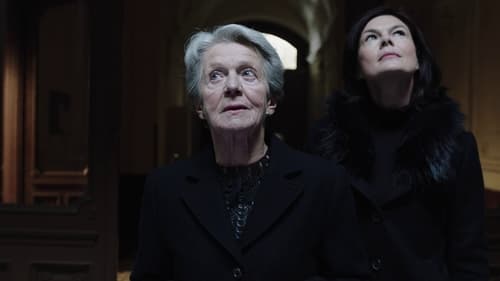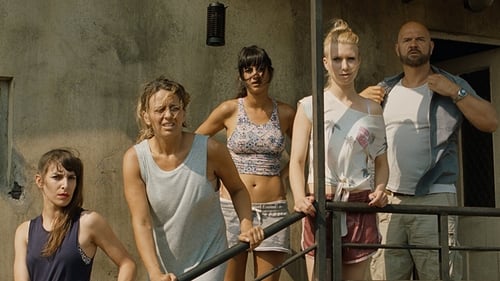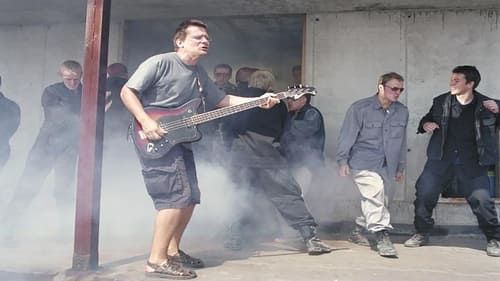
The mother loves her daughter; the daughter loves her mother. The tragedy of misunderstood love. The adaptation of Magda Szabó's novel translated into twelve languages.

Apa
33-years old Tamás Merthner is heartbroken, after his girlfriend Anna, who is on a scholarship in Paris, breaks up with him. While wallowing in self-pity, Tamás takes a trip down memory lane to figure out if love only exists when it's practically gone. As he's trying to pick up the pieces, he begins to realize what makes this current society so confused, which gives us a highly subjective view of Hungary's present.

Adwokat
The three stories within Genesis explore the notion of family: a woman in her late thirties rediscovers the faith she lost as a child; a mother goes to extreme lengths to ensure that her daughter is saved from the fate she was forced to endure; a Roma boy’s family are killed and the perfect world of his childhood is destroyed.

József

István
At a gas station in the middle of nowhere, a young man arrives to meet his father he hasn't seen for 30 years. On the same day, a van with four prostitutes breaks down at the very same gas station, on the way to Switzerland. The three days they spend together in the station change their lives forever.

Szentesi Endre
Áron stands in his life as an average 29-year-old weirdo. He has many contemporary complexes, a fresh university degree, and a recent break up. His parents have to support him financially as he is still a job seeker and while Áron is agonizing on his lost love, he is always interrupted by something; it seems like he’s not the main character in his life.

Férj
교통 체증 속에 놓인 노년의 부부. 아내는 떠들고 경고하고 명령한다. 아내는 경찰이자, GPS이며 평론가이다. 남편은 성내면서 반기를 든다. 이 영화는 그들의 세상이 어떻게 돌아가는지에 대한 것이다. 그러나 인생은 끝없는 재구성이지 않은가...

It is 1912 and war looms on the horizon. The school year begins in a boarding school run by priests. Zoltán's father, is one of the masters and struggling with questions that challenge their faith, while waiting for news of his brother, Titanic passenger, and is a particularly problematic group of new students, many of whom have been fond increasingly heavy play each other jokes. The arrival of Father Weigl, hired to teach physical education, will bring alarming consequences.

Árpád Bogdán's debut film seduces you with stylized visuals and an intensity that gives you an insight into the director's mind. His profound knowledge of the subject is evident throughout a film that is bereft of sex and violence. There is a poetic feel to the images that include a horse running wild on the streets of Budapest before it is caught and led into a horse trailer. The sequence is an eerie symbolic reminder of earlier visuals in the film of the young boy fleeing from parents/elders being arrested by police with the mother figure urging the child to run before he himself is caught and taken to an orphanage, psychologically scarred...(c) http://www.imdb.com/title/tt0944188/reviews

Apa

Tanár Úr
1989 is an important year in the political history of Hungary. However, Petya and his friends couldn't care less. They are about to graduate high school. The only important things to them are the parties, girls, making some easy cash. And of course, passing the upcoming exam with the leaked questions.

Zsolt
Waiters’ competition at Heroes’ Square in the late thirties. Dressed as waiters, Kapa and Pepe awake in the bronze chariot of the millennial sculpture group. They drive along the Danube promenade, and on the concrete reinforcement of the demolished Budapest rondella hotel they get involved in a showdown of political background. In the burnt-down Sports Hall the waiters train for a last supper, Pepe and Kapa run around the big laid table with trays in their hands. While doing so, Pepe keeps crying out: "I am the best one, I am the most beautiful one, I am the king, I am the god..." Sitting in a boat on the Danube, a ship goes past them, and the Niagara falls, majestic and breathtaking, resound in their ears. On each passing away something new will come to life – as rapped by Sub Bass Monster.

Zsolti
Kapa, Pepe and Mesi would like to buy a scrapyard of trains, to start a nostalgia train and earn a lot of money. The capital to start with they want to get from grandpa, who has come home from America with a suitcase full of money. Everybody wants Mesi to approach the old man, because she is the only one he would speak to. But Mesi is more concerned with the idea that she wants a child, by now from anyone, while Pepe is jealous. Kapa’s alleged son emerges, with the mafia behind him: they, too, are eager to get grandpa’s money. After threats and blackmailing, poisoned apples are sent, with only one side of them poisonous. Those dead, by the way, are resurrected by the sound of a song. At last, nobody manages to get the money, but it wouldn’t make sense anyway: it’s all fake. The Statue of Liberty, however, turns out to be blind.


Zsolti
In the Kerepesi Street cemetery, three grave diggers contemplate the fate of the world, then they step out of this role and in a sequence of episodes they play the typical figures of contemporary Hungarian reality, the fat cat, the swashbuckler, the victim, underworld chieftains, and present little absurd dramas of love, marriage, friendship, public order and legal safety. The author and the film director walk among them all the time, contemplating, laughing at their plays. The stories starting from the graveyard and returning there warn of the inevitability of death. The author and the director (Gyula Hernádi and Miklós Jancsó) wisely make friends with death.

Dem











